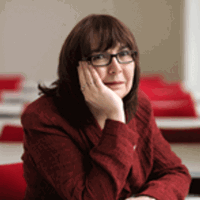This event is free of charge, but registration is required. After registering your place, you will receive login details to join before the webinar begins.
If you have any questions, please contact [email protected]
Public event
This webinar is for prospective applicants to the APEX award scheme and their university research offices. It will include an introduction to the scheme, a brief presentation by the APEX Award Committee Chairs, as well as presentations from two APEX award holders and a Q&A.
The webinar will cover different aspects of the APEX scheme and provide information on what the panel look for when assessing applications for the scheme and how prospective applicants can craft strong applications
About Apex Awards
In partnership with the British Academy, the Royal Academy of Engineering and the Royal Society (‘the Academies’) and with generous support from the Leverhulme Trust, the APEX award (Academies’ Partnership in supporting Excellence in cross-disciplinary research award) scheme offers established independent researchers, with a strong track record in their respective area, an exciting opportunity to pursue genuine interdisciplinary and curiosity-driven research to benefit wider society.
The scheme places a particular emphasis on the boundary between science, engineering and the social sciences and humanities
Read more about the scheme and details on eligibility
Programme
| 2.00pm |
Welcome |
| 2.05pm |
Introduction to the APEX award scheme |
| 2.20pm |
Perspectives from the APEX chairs |
| 2.35pm |
APEX award holders’ perspectives |
| 2.55pm | Q&A |
| 3.15pm | Close |
Recording notice
Please note this event will be recorded and published on the Royal Academy of Engineering website. Your video will be off and your account will be muted throughout the entire event. Only the speakers and presentations will be visible on your screen.
Accessibility
It is very important to the Royal Academy of Engineering that our events are accessible to all. If you have any accessibility requirements, please contact the Events team at your earliest convenience so that necessary arrangements can be made. Contact details: [email protected]

Professor Chris Frith FMedSci FBA FRS

Professor Carole Goble FREng

Dr Robyn Grant

